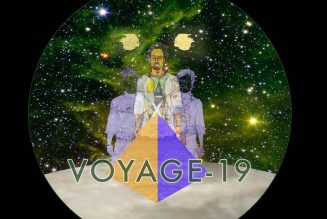EVERY TIME Ustad Rashid Khan sat down to perform anywhere in the world, those present had one demand — Yaad piya ki aaye, ye dukh saha na jaaye, haaye ram (The memories of my beloved haunt me, Alas, I cannot bear this grief) – the famed thumri by Kasur-Patiala gharana doyen Ustad Bade Ghulam Ali Khan that remains the leitmotif to his mention.
For years, many vocalists attempted to sing the lament that was created after Bade Ghulam Ali lost his wife. But if anyone managed to enter the vicinity of the pain and yearning in that iconic rendition and then executing it with a sense of ownership, it was perhaps only Ustad Rashid Khan, the torchbearer of Rampur Sehaswan gharana.
Every time, he sang this love song, one felt that he’d surrendered himself to the intrinsic sorrow of the piece the moment he began to unfurl it; colouring it with his own flourishes often, finding notes that one sometimes didn’t think could even stick, merging gharanas and astounding people with a brilliance that is the stuff of lore. Somewhat like Pt Bhismsen Joshi, who had called him “an assurance for the future of Indian classical music”, one of the only young musicians Joshi acknowledged and lauded in public.
On Tuesday afternoon, Ustad Rashid Khan, perhaps the finest Hindustani classical vocalist of our times and a compelling reminder of the brilliance and brightness of an age-old musical era lost to us, passed away in a Kolkata hospital after a prolonged battle with prostate cancer and a cerebral attack that had put him on a ventilator and oxygen support for the past couple of weeks. He was 55 and is survived by his wife Joyeeta, daughters Suha and Shaona and son Armaan.
Born in UP’s Badayun, in an illustrious musical family, Rashid was the great grandson of Ustad Inayat Hussain Khan, the founder of Rampur Sehaswan gharana and a disciple of Bahadur Hussain Khan, a direct descendent of Mian Tansen. For a young Rashid, who lost his mother early, any assertion of his musical pedigree was of no interest as he was fond of cricket and kabaddi. As for music, it was all about film songs of the time, especially songs by Mohammad Rafi. His father, fearing that Rashid may not take up the art form, took the six-year-old to Ustad Nissar Hussain Khan, a guru with an iron hand and once the court musician for Maharaj Sayajirao Gaekwad III.
In 1977, when Rashid was 10, Nissar Hussain moved to ITC Sangeet Research Academy in Kolkata on the invitation from its founder Pt Vijay Kichlu. Rashid’s father sent him to Kolkata to continue his training, which Rashid did not enjoy for years, even after he made his debut at 11 and got a scholarship to join the academy when he was 14. He also learned under the tutelage of his uncle Ustad Ghulam Mustafa Khan, where he met another student, singer Hariharan, and two became close friends.
It was much later, after learning for years and when he could play around amid the musical framework that he had been taught, that Rashid began to enjoy classical music. Soon, he was opening for greats like Pt Ravi Shankar, Ustad Vilayat Khan, Ustad Ali Akbar Khan, Girija Devi and Pt Nikhil Banerjee among others at national music conferences and finding accolades as a prodigy.
Advertisement
While Rampur-Sahaswan’s style taught him the full-throated singing, intricate taans and an immense respect for the age-old music system, which he always carried, Rashid also expanded on his training, performed extensively, went beyond the classical realm to sing in films besides ghazal albums, and sometimes to the exasperation of critics, change the refrain of the bandishes of a slew of ragas.
In all of this, what Rashid and his soulful music did was bring back the young and the uninitiated into the classical realm and learn about its tenets, even if they came to listen to “Aaoge jab tum o saajna” from Imtiaz Ali’s ‘Jab We Met’. Often his concerts came with rasikas in the aisles; students, musicians, cab drivers, lining up to find a spot to find an ingress into the sacred yet innovative space he could create.
One of his early concerts, his jugalbandi with Pt Bhimsen Joshi, remains one of the more cherished concerts of the classical music world. Towards the end of the concert, the duo explored “Sajan tum kaahe ko neha lagaye” in raag Tilang. Here were two musicians from two different generations searching for the pining that its creator Ustad Abdul Kareem Khan had once attempted in the piece, a poignant reminder that Ustad Rashid Khan, a brilliant musician at the peak of his career who could match notes with a great like Joshi and who had so much to give and explore, should have stayed. For much longer.










